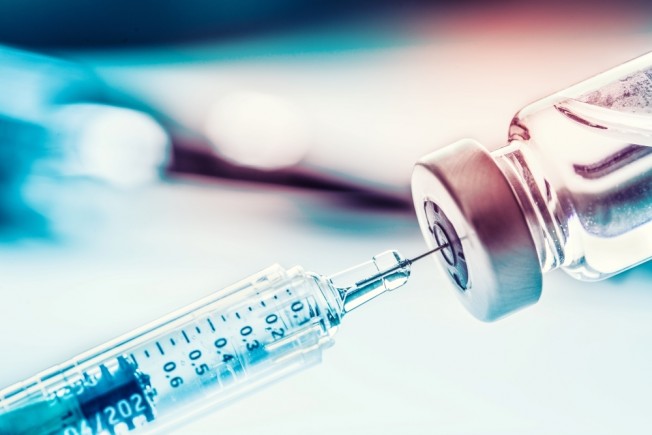Review of animal use requirements in WHO biologics guidelines
At a glance

Project overview
Biologicals such as vaccines, cytokines, enzymes, and hormones are tested extensively post-licensure as part of routine quality control and batch release testing to ensure the safety and potency of products. The World Health Organization (WHO) is mandated to establish international standards for this purpose and as such their guidelines and recommendations carry significant influence, being adopted by most global regulatory authorities. However, a review of the animal testing requirements within these guidelines had never been conducted and there may have been opportunities to adopt the latest non-animal technologies that were being missed as a result.
In direct response to our recommendations from this project, the WHO has developed new guidelines that strongly encourage manufacturers and regulators to replace or remove animal-based quality control methods whenever scientifically justified. The guidelines were accepted by the Expert Committee on Biological Standardization (ECBS) in October 2025 and will be formally published as a resource in the WHO Institutional Repository for Information Sharing (IRIS) and in the WHO Technical Report Series in Spring 2026.
Read our news item to find out more: New WHO guidelines on non-animal tests for quality control of biologics.
You can find our full report and a searchable database of animal tests identified with recommendations for the implementation of the 3Rs on our dedicated resource page: Review of animal use requirements in WHO biologics guidelines.
We have initiated a follow-on project, funded by the Bill & Melinda Gates Foundation, to support delivery of the 3Rs impacts of our recommendations, driving their implementation and accelerating the adoption of the latest non-animal testing methods by the global biologics community: Supporting 3Rs approaches in biologicals testing.
We worked with the WHO, with funding from the Bill & Melinda Gates Foundation, to carry out an independent and comprehensive review of WHO guidelines for biologics to determine:
- Which animal tests are recommended for the batch release testing of biologicals and vaccines.
- What 3Rs principles are already encouraged, what opportunities exist for better implementation of 3Rs principles and alternative test methods within those guidelines, and to make recommendations to WHO on how this could be best achieved.
- What barriers exist in different regions which may hinder the adoption of 3Rs approaches by manufacturers, national regulatory authorities, and control laboratories that are responsible for the testing and release of biologicals.
It has been estimated that more than 10 million animals a year are used worldwide in biologicals development and that 80% of these animals are used for routine quality control and batch release tests of licensed products. The use of such a large number of animals puts a significant financial burden on manufacturers and national control laboratories, is time and resource intensive, and the methods themselves can cause significant pain and distress to the animals. Improved adoption of 3Rs principles and non-animal testing strategies will help to reduce the delays and costs associated with product release testing and help support faster access to cheaper products by the global communities who need them most urgently.
The project was approved by the WHO ECBS which provides guidance to WHO on matters relating to biologicals development and testing, in October 2019: WHO Technical Report Series. 2020; 1024: Section 2.2.2 (p8).
The project was overseen by an expert international working group to support the review of the guidelines and develop the recommendations that were submitted to the ECBS for their approval and implementation in October 2023.
The video below provides a detailed overview of the project
Stakeholder engagement
We engaged extensively throughout the project with the global biologicals manufacturer and regulator communities to understand the sector and regional perspectives that may impact the adoption of 3Rs approaches. These interactions informed the recommendations we have made to WHO and will facilitate the integration of 3Rs approaches in biologicals quality control and batch release testing.
Engagement has been primarily through:
- A series of international workshops, the recordings of which are hosted on our dedicated resource page: The impact of 3Rs approaches on quality control and batch release testing of biologicals.
- Surveys of manufacturers and regulators, the output of which are available below in the publications section.
Working group members
|
Publications
- Poster presented at the 11th World Congress on Alternatives and Animal Use in the Life Sciences: Review of animal testing requirements in WHO guidelines and recommendations for biologics: a proposal to implement 3Rs principles.
- Poster presented at the 3rd International Alliance for Biological Standardization (IABS) Workshop focused on Global Harmonization of Specifications: Review of animal testing requirements in WHO guidelines and recommendations for biologics: a proposal to implement 3Rs principles.
- Poster presented at the 12th World Congress on Alternatives and Animal Use in the Life Sciences: Bringing quality control and batch testing of biologicals into the 21st century.
- Lilley E et al. (2021). Integrating 3Rs approaches in WHO guidelines for the batch release testing of biologicals. Biologicals 74: 24-27 doi.org/10.1016/j.biologicals.2021.10.002
- Lilley E et al. (2022). Integrating 3Rs approaches in WHO guidelines for the batch release testing of biologicals: Responses from a survey of vaccines and biological therapeutics manufacturers. Biologicals 81: 101660 doi.org/10.1016/j.biologicals.2022.11.002
- Lilley E et al. (2023). Integrating 3Rs approaches in WHO guidelines for the batch release testing of biologicals: Responses from a survey of National Control Laboratories and National Regulatory Authorities. Biologicals 84: 101721 doi.org/10.1016/j.biologicals.2023.101721
- Lilley E et al. (2025). Integrating 3Rs approaches in WHO guidelines for the batch release testing of biologicals: Reports from a series of NC3Rs stakeholder workshops. Biologicals 89: 101777 doi.org/10.1016/j.biologicals.2025.101777
- Lilley E et al. (2025). Integrating 3Rs approaches in WHO guidelines for the batch release testing of biologicals: Summary of NC3Rs final report to WHO Expert Committee for Biological Standardisation. Biologicals 89: 101778 doi.org/10.1016/j.biologicals.2025.101778
- Feavers I et al. (2025). Conference report WHO informal consultation on the draft WHO Guideline on the phasing out of animal tests for the quality control of biological products. Biologicals 92: 101862 doi.org/10.1016/j.biologicals.2025.101862
